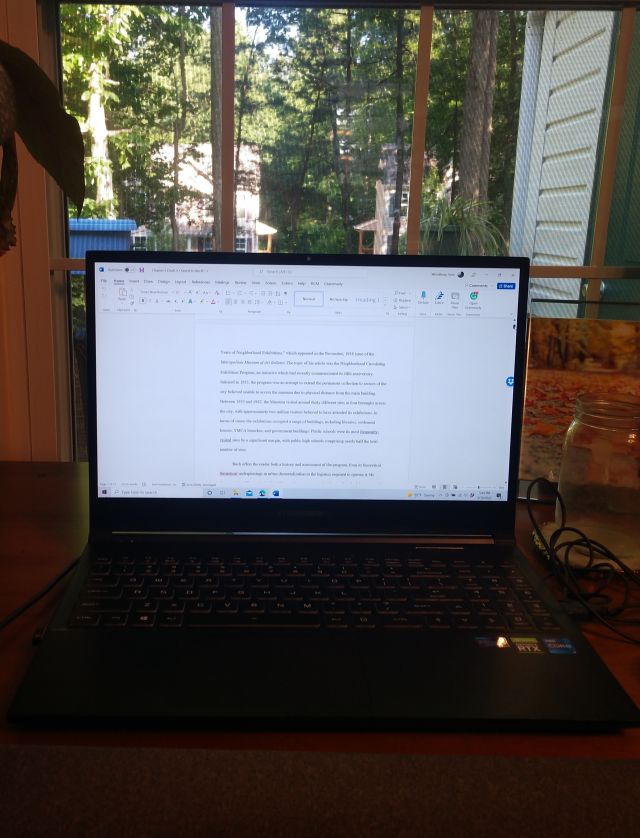Today’s post will be a short one because I don’t have a lot of updates from last month.
The main thing that happened is that I finished a preliminary draft of chapter 2 and sent it to my adviser right before I left for Scotland. About a week after I returned, we got together to discuss what I had written. I observed that I thought the draft was too long and meandering, which isn’t surprising because it’s the first attempt, and he offered some suggestions for identifying and tightening the argument. The next step is to actually go back to that draft and rework it.
In a lot of ways, this was a big step for me personally, not so much in the quality of the work, but in my willingness to share something so raw and unfinished. I’ve always handed in written assignments, even drafts, in a highly polished state, spending hours and hours editing them to a point where I no longer find them embarrassing. My adviser though, had expressly stated that he wanted an unedited version so that he could see my thinking process and suggest any possible major changes while the draft was still malleable. So that’s exactly what I sent. This would have mortified me a few years ago, but thanks to presenting at conferences and hosting events like the symposia at the Equality Lab, where unfinished, open-ended discussions are centered over complete projects, I’ve gotten more comfortable with sharing work in progress. Yet even with this draft, I’ve gone to a new level by sharing something with no revisions whatsoever. It may not sound like a lot, but for me, it shows how much I’ve grown as a scholar since coming to William & Mary.
Indeed, in some ways, the rewriting process, or at least motivating myself to begin that process, is proving to be more difficult, and I’ve been experiencing a similar resistance to working as I did with chapter 1 last semester. Writing a very first draft isn’t hard because I know it’s going to change, I just need to get the words down. But going back and doing that first edit requires more finesse and discipline than a near stream-of-consciousness writing, and while I know I can do it, getting started takes a bit of motivation. Multiple side projects, from chapter contributions for edited volumes to my ongoing work with the Barry Art Museum, haven’t exactly helped with that because it’s easy to find other kinds of work to do. Back-to-back trips haven’t helped either, as my surroundings and my schedule keep getting shaken up every other week.
But I ultimately made that travel work to my advantage. This past weekend, I flew to Morristown to give a lecture about Motion/Emotion at the Morris Museum‘s annual convention, Automatacon (more on that in a future post). Before I left though, I downloaded the second chapter to my tablet so that I would be able to read it. With nothing else to do while in transit, I finally read through the chapter and took notes about it in my dissertation journal, which will guide my edits once I return to the draft this week. Sometimes it’s just getting started that’s the hardest part, but rather than use my travel as an excuse to further delay dissertation work, I used it as a means to filter out all other commitments and distractions.
Which is a good thing, because in a few weeks I have another research trip when I finally make my way to the archive at the Walker Art Center.
